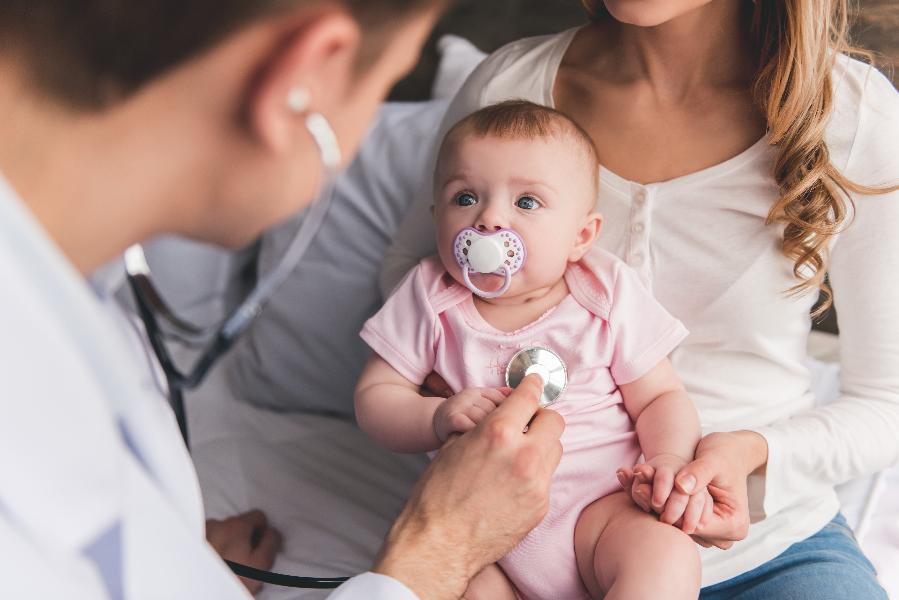Your baby's health and development
Your baby's health and development
Sunderland's Healthy Child Programme offers every family a programme of screening tests, immunisations, developmental reviews, and information and guidance to support parenting and healthy choices.
The programme is delivered by a range of professionals: health visitors, midwifery staff, Family Hubs, GPs and the primary health care team. It aims to:
- Help parents develop a strong bond with children
- Encourage care that keeps children healthy and safe
- Protect children from serious diseases, through screening and immunization
- Reduce childhood obesity by promoting healthy eating and physical activity
- Encourage mothers to breastfeed
- Identify problems in children's health and development (for example, learning difficulties) and safety (for example, parental neglect), so that they can get help with their problems as early as possible
- Make sure children are prepared for school
- Identify and help children with problems that might affect their chances later in life
Newborn screening
Your newborn baby will be offered some screening tests in their first six to eight weeks. These include:
- Newborn physical examination
- Newborn hearing screening test
- Newborn blood spot (heel prick) test
The screening tests are quick and simple, and won't harm your baby in any way. It's recommended that your baby has the tests, but you can decline them if you wish. See NHS newborn screening to find out more information about each of the tests.
Your baby's vaccinations
Your baby needs their first injections at 8 weeks. Vaccinations are offered free of charge in the UK - just book your appointments with your GP.
Don't panic if you miss a vaccination appointment, just make an appointment as soon as possible. Find out more: Vaccinations and newborn screening tests - Start for Life - NHS (www.nhs.uk) or ask your GP or health visitor for more information.
Oral health
Babies should be registered with the dentist as soon as first teeth appear and regular visits should be encouraged. It is important to start brushing your baby's teeth as soon as they appear. You can find out more about looking after your baby's teeth:
- Looking after your baby's teeth
- Caring for teeth - children's teeth
- Oral health
- Healthy Teeth
- A Practical Guide to Children's teeth
- Find a dentist
- Teething in babies: signs, remedies, and a free downloadable teething chart - BBC Tiny Happy People
Community Dental Service - South Tyneside and Sunderland
The serviece provides a full range of dental treatment for patients of all ages whose complex needs mean they have difficulty in accessing general dental services (high street/family practices).
We aim to provide high quality dental care locally for patients with a wide range of individual needs. This includes individuals who are medically compromised or have mental health issues; adults and children with severe learning disabilities or physical disabilities and children with behavioural management issues.
Tel: 0191 502 6750
A Parents' Guide to oral health and dental care for children with a learning disability, autism or both
This document (PDF, 271 KB) contains a parents' guide to oral health and dental care for children with a learning disability, autism or both.
Safety (unintentional injury)
Suffocation, choking and falls in and around the home are a leading cause of preventable death in the under fives.
Find out What to do if your child has an accident.
Common illness and support
The NHS website and Healthier Together have a wealth of information and advice on health conditions, symptoms, healthy living, medicines and how to get help.
Playtime
Your baby's favourite playmate is you - so try to spend time playing with your baby every day. Did you know that playing actually requires a lot of your baby's brain and muscle power, helping develop their social, intellectual, language and problem-solving skills?
You can turn almost anything into a game. And every little thing you do together will help set them up nicely for the day they start school. Useful information and tips:
Baby
- Baby's first years - click here to find lots of information on the Start4Life website.
- Tummy time - playing requires a lot of your baby's brain and muscle power, click here for a variety of activities and tummy time ideas for your baby on the Start4Life website.
- Learning to talk - from tips to help with speech, encouraging chatting and reading: Learning to talk 0 to 6 months - NHS (www.nhs.uk)
Toddler
From helping your child learn to talk by chatting, reading and playing together, to encouraging them to be physically active, click here for lots of helpful information on the Start4Life website.
Development milestones
Every baby is unique, but the science is clear: in the first 1,000 days of life, your baby's brain develops faster than at any other time. Early moments matter and their effects can last a lifetime.
To find out more about how your child will grow download the Children's Health Services App which gives some advice, information and top tips from when baby is 2 weeks to 3 years old.
Download the 0-19 Children's Health Services app for Android here.
Download the 0-19 Children's Health Services app for Apple here.





